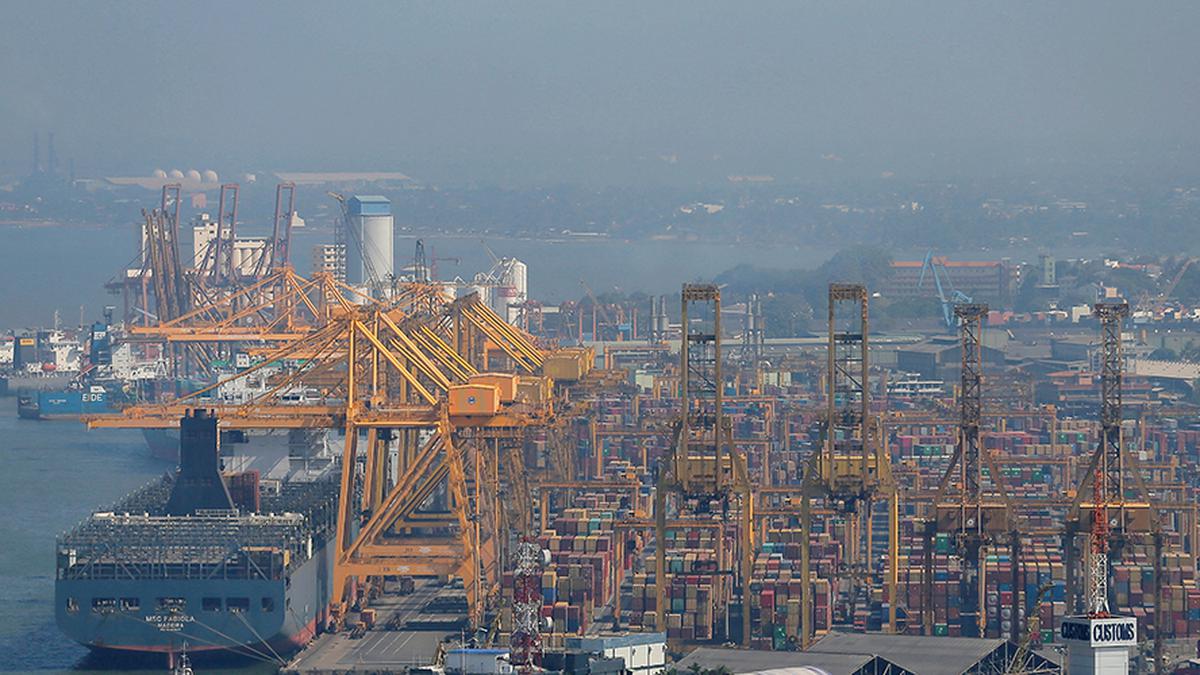
Following India, U.S. raises Chinese vessel visit with Colombo
The Hindu
Following India, the U.S. raised concerns over Chinese research vessel's visit to Sri Lanka. Colombo reassures adherence to SOP for foreign vessels. India, U.S. expressed strong reservation over Chinese warship's visit to Sri Lanka in Aug 2020.
Following India, the U.S. has raised concern with the Ranil Wickremesinghe administration, over the scheduled visit of a Chinese research vessel to Sri Lanka in October, Colombo-based media has reported.
In a recent meeting with Sri Lanka’s Foreign Minister Ali Sabry, Under Secretary of State for Political Affairs Victoria Nuland took up the coming visit of Chinese research vessel Shi Yan 6 to Sri Lanka, the Daily Mirror newspaper reported on Monday. Reportedly, Mr. Sabry reassured the American official that Colombo would adhere to a “Standard Operating Procedure” that the government has recently finalised, for all foreign vessels intending to call at a Sri Lankan port.
New Delhi had recently raised the matter with a top Sri Lankan official, Colombo-based sources told The Hindu.
While Sri Lanka’s Ministry of Defence has made its recommendation on the vessel’s visit to the Ministry of Foreign Affairs, an official comment from the Foreign Ministry is awaited. According to local media, defence authorities have cleared the visit.
Earlier this month, China’s state-run news channel CGTN reported that “Chinese geophysical scientific research vessel Shiyan 6” or (Experiment 6) was heading out on an “expeditionary voyage” in the eastern area of the Indian Ocean, departing from Guangzhou, south China’s Guangdong Province. “Organised by the South China Sea Institute of Oceanology (SCSIO) under the Chinese Academy of Sciences, the vessel is scheduled to operate at sea for 80 days with 28 scientific research projects from 13 research teams onboard, covering a range of more than 12,000 nautical miles (roughly 22,200 km),” it said.
Sri Lanka’s National Aquatic Resources Research and Development Agency (NARA), said to be a partner in the vessel’s research activities in Sri Lankan waters, earlier stated that the data collected during the process would be in its possession. The research vessel’s scheduled visit will come months after another Chinese warship docked at the Colombo port for a few days. The visits assume significance after Chinese military ship Yuan Wang 5 arrived at Sri Lanka’s Hambantota port in August last year, despite India and the U.S. expressing strong reservation at the time. China maintained that it was “completely unjustified for certain countries to cite the so-called ‘security concerns’ to pressure Sri Lanka”.
Colombo’s decision to allow the visit last year — after deferring it by five days — strained diplomatic ties with New Delhi, at a time when India extended unprecedented economic relief to the island nation that was experiencing its worst financial meltdown. Subsequently, President Wickremesinghe and top officials form the Sri Lankan side repeatedly sought to reassure India that Sri Lanka will ensure that its territory is not used for any activity that could threaten India’s security interests in the region.

“Writing, in general, is a very solitary process,” says Yauvanika Chopra, Associate Director at The New India Foundation (NIF), which, earlier this year, announced the 12th edition of its NIF Book Fellowships for research and scholarship about Indian history after Independence. While authors, in general, are built for it, it can still get very lonely, says Chopra, pointing out that the fellowship’s community support is as valuable as the monetary benefits it offers. “There is a solid community of NIF fellows, trustees, language experts, jury members, all of whom are incredibly competent,” she says. “They really help make authors feel supported from manuscript to publication, so you never feel like you’re struggling through isolation.”

Several principals of government and private schools in Delhi on Tuesday said the Directorate of Education (DoE) circular from a day earlier, directing schools to conduct classes in ‘hybrid’ mode, had caused confusion regarding day-to-day operations as they did not know how many students would return to school from Wednesday and how would teachers instruct in two modes — online and in person — at once. The DoE circular on Monday had also stated that the option to “exercise online mode of education, wherever available, shall vest with the students and their guardians”. Several schoolteachers also expressed confusion regarding the DoE order. A government schoolteacher said he was unsure of how to cope with the resumption of physical classes, given that the order directing government offices to ensure that 50% of the employees work from home is still in place. On Monday, the Commission for Air Quality Management in the National Capital Region and Adjoining Areas (CAQM) had, on the orders of the Supreme Court, directed schools in Delhi-NCR to shift classes to the hybrid mode, following which the DoE had issued the circular. The court had urged the Centre’s pollution watchdog to consider restarting physical classes due to many students missing out on the mid-day meals and lacking the necessary means to attend classes online. The CAQM had, on November 20, asked schools in Delhi-NCR to shift to the online mode of teaching.









